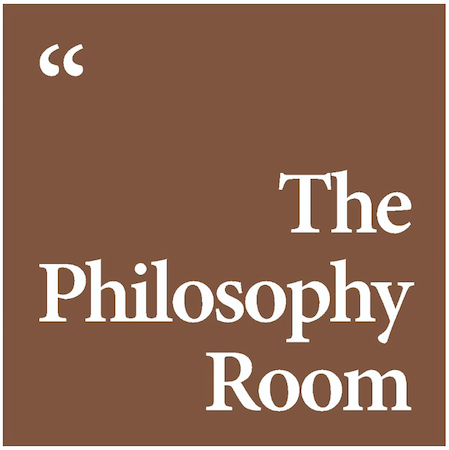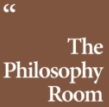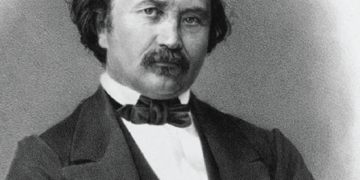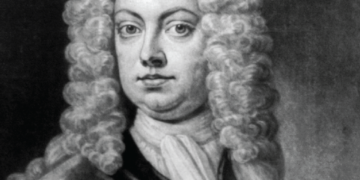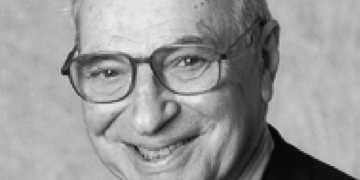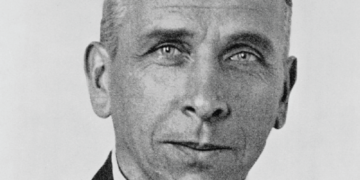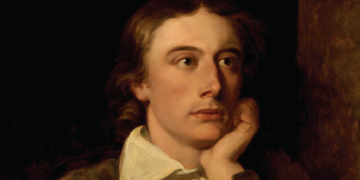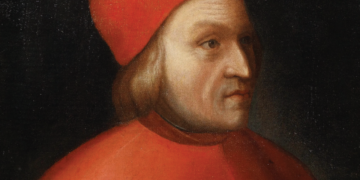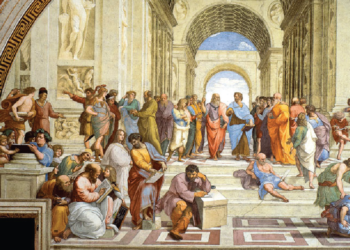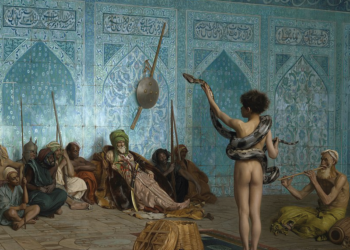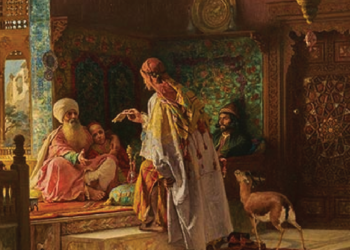Adam Ferguson
1) His Biography
Adam Ferguson, born on 20 June 1723 in Logierait, Perthshire, Scotland, was a prominent figure of the Scottish Enlightenment, best known for his contributions to social and political philosophy. His father, Reverend Adam Ferguson, was a Presbyterian minister, a role that influenced Ferguson’s early exposure to theological and philosophical education. The intellectual environment of Scotland during the 18th century played a significant role in shaping his formative years, and he grew up surrounded by ideas of rationalism and moral philosophy.
Ferguson began his formal education at the University of St Andrews, where he studied classics, philosophy, and theology. He later pursued further studies at the University of Edinburgh, a centre of Enlightenment thinking. Originally intending to enter the ministry, Ferguson eventually found himself more interested in the secular world of ideas. However, his early theological training remained a critical foundation for his later philosophical explorations, particularly his interest in the moral and social dimensions of human behaviour.
In 1745, Ferguson took on the role of chaplain to the Black Watch, a Highland regiment. His experiences with the regiment during this period were formative, providing him with first-hand observations of military life and human behaviour in times of conflict. These experiences would later inform his reflections on the nature of society, war, and civilisation, themes that became central to his later work. Ferguson’s time with the regiment also helped cultivate a pragmatic approach to social theory, blending moral philosophy with empirical observation.
By the 1750s, Ferguson had left the military and shifted his focus to academia. He began his career as a tutor to the children of aristocratic families, which allowed him to develop his intellectual reputation. In 1757, Ferguson was appointed the librarian of the Advocates Library in Edinburgh. This role not only facilitated his access to a vast array of literature but also solidified his place in Scotland’s burgeoning intellectual scene. His connections with key figures of the Scottish Enlightenment, such as David Hume, Adam Smith, and Dugald Stewart, allowed for vibrant exchanges of ideas.
Ferguson’s most prominent academic position came in 1764 when he was appointed the Professor of Moral Philosophy at the University of Edinburgh. It was here that he began to articulate his views on society and human nature, culminating in the publication of his seminal work An Essay on the History of Civil Society in 1767. This work established Ferguson’s reputation as a leading thinker, offering a comprehensive exploration of social progress and the dynamics of human civilisation. He argued that social cohesion and moral progress were products of human interaction and conflict, a perspective that set him apart from other Enlightenment philosophers.
Throughout his life, Ferguson remained an advocate for civic engagement and the importance of public virtue. His views on liberty, social order, and the role of conflict in shaping human society reflected his commitment to both philosophical inquiry and practical social concerns. Ferguson’s later works, including Institutes of Moral Philosophy (1772) and The History of the Progress and Termination of the Roman Republic (1783), further expanded on these themes, blending historical analysis with moral and political philosophy.
In his later years, Ferguson retired from his academic position but continued to be an active participant in intellectual debates. He maintained a keen interest in political and social developments, and his correspondence with leading thinkers of the time reflected his enduring engagement with philosophical issues. Ferguson died on 22 February 1816 in St Andrews, Scotland, leaving behind a rich intellectual legacy that influenced generations of social and political thinkers. His insights into the nature of civilisation and the forces that drive social change remain relevant to this day.
2) Main Works
An Essay on the History of Civil Society (1767):
Ferguson’s An Essay on the History of Civil Society is considered his magnum opus and a foundational text in the field of social philosophy. The book explores the evolution of human societies, offering a nuanced examination of the tensions between individual liberty and social order. Ferguson rejected the idea that civilisation progressed linearly; instead, he argued that human development was marked by conflict, cooperation, and adaptation. His observations on the division of labour, civic virtue, and social cohesion were critical contributions to Enlightenment debates about human nature and progress.
The work also served as a critique of commercial society. Ferguson feared that an overemphasis on economic gain and luxury would weaken public virtue and civic responsibility. Drawing on historical examples, he highlighted how societies that prioritised collective engagement tended to be more resilient. His emphasis on the dynamic and unpredictable nature of social change made him a key figure in early sociology, influencing later thinkers such as Karl Marx and Émile Durkheim.
Institutes of Moral Philosophy (1772):
This work was primarily intended as a textbook for students studying moral philosophy at the University of Edinburgh. In Institutes of Moral Philosophy, Ferguson outlined key concepts in ethics, moral reasoning, and human nature. He explored various moral systems, from ancient Greek and Roman philosophies to more contemporary Enlightenment ideas, aiming to provide students with a broad intellectual foundation. He placed significant emphasis on the role of reason and social interaction in moral development, arguing that moral values were shaped by communal life rather than existing in isolation.
The book also addressed the relationship between morality and politics. Ferguson saw moral behaviour as essential for the maintenance of a just and functional society. He was particularly concerned with the impact of social inequality and individual ambition on public virtue. His pedagogical approach, combining moral theory with historical and practical examples, reflected his belief that moral philosophy should have real-world applications.
The History of the Progress and Termination of the Roman Republic (1783):
Ferguson’s historical work on the Roman Republic was both a historical study and a reflection on the political themes of his time. In this extensive analysis, Ferguson chronicled the rise and fall of the Roman Republic, paying close attention to its social and political institutions. He identified the internal conflicts, power struggles, and moral decay that led to the Republic’s decline, using these historical lessons as a lens to critique contemporary European politics.
A major theme of the work was the fragility of liberty in the face of corruption and unchecked ambition. Ferguson admired the early Roman virtues of discipline, civic engagement, and public service but lamented how these values were eroded over time. He warned that similar patterns could repeat in modern societies if they neglected the moral foundations of civic life. His blend of historical scholarship and moral philosophy made this book a significant contribution to Enlightenment historiography.
Principles of Moral and Political Science (1792):
Principles of Moral and Political Science was Ferguson’s most systematic work, providing a comprehensive account of his views on human nature, ethics, and governance. The book synthesised many of the themes he had explored in earlier works, offering a unified framework for understanding social and political life. Ferguson examined the development of social institutions, the role of custom and law in shaping behaviour, and the tension between individual freedoms and collective responsibilities.
In this work, Ferguson also expanded on his ideas about the importance of civic virtue. He argued that a well-functioning society required active and informed citizens who prioritised the common good over personal gain. His discussions on the balance of power, the rule of law, and the nature of authority were particularly relevant to the political debates of the late 18th century, marked by revolutions and the rise of democratic ideals. The book cemented Ferguson’s reputation as a major thinker in political philosophy.
Reflections Previous to the Establishment of a Militia (1756):
One of Ferguson’s earliest works, Reflections Previous to the Establishment of a Militia addressed the issue of national defence and civic duty. Written during a time of growing tension between Britain and its European rivals, Ferguson argued for the establishment of a national militia composed of citizen-soldiers. He believed that military service should not be confined to professional soldiers but should be a shared responsibility among the populace. This, he argued, would not only strengthen national defence but also promote public virtue and social cohesion.
Ferguson’s reflections were deeply rooted in his belief that participation in communal activities, such as military service, was essential for the development of moral character. He warned against the dangers of relying too heavily on standing armies, which he viewed as potential threats to liberty. This early work demonstrated Ferguson’s commitment to civic engagement and foreshadowed many of the themes he would explore in his later writings on society and politics.
3) Main Themes
The Role of Conflict in Social Progress:
One of Adam Ferguson’s most original contributions to social philosophy was his emphasis on the role of conflict as a driving force in societal development. Ferguson argued that social progress did not arise from harmony or static equilibrium but from the dynamic tensions between competing groups and interests. He viewed these struggles as necessary for social innovation and adaptation. Unlike many of his contemporaries, who believed that societies evolved towards ever-increasing refinement and perfection, Ferguson stressed that progress was often non-linear and unpredictable.
The first aspect of this theme is Ferguson’s belief that internal social conflicts—such as those between different social classes or political factions—could lead to the strengthening of society’s moral and institutional frameworks. By addressing grievances and forcing adaptations, these tensions helped foster resilience and creativity within communities. This view contrasted sharply with Enlightenment thinkers like Voltaire, who saw conflict as a sign of societal failure. Ferguson’s perspective aligned more closely with later thinkers such as Hegel, whose dialectical method also emphasised the productive role of opposition.
Secondly, Ferguson explored how external conflicts, such as wars or competition between nations, could catalyse internal reforms. He admired the early Roman Republic for using external threats as a unifying force that strengthened civic participation and public virtue. However, he also warned that unchecked militarism could erode liberty, a concern later echoed by Immanuel Kant’s critiques of war and perpetual militarisation. Ferguson’s nuanced stance on war—recognising both its constructive and destructive potential—was a significant departure from more one-sided Enlightenment perspectives.
Finally, Ferguson emphasised the moral dimension of conflict. He believed that moral virtues such as courage, justice, and fortitude were cultivated through adversity. This notion contrasted with Adam Smith’s focus on the moral sentiments that arose from sympathy and cooperation. Ferguson’s insistence on the moral benefits of struggle made him a distinctive voice in the Enlightenment’s broader discussions on human nature and ethics.
Civic Virtue and the Common Good:
Central to Ferguson’s philosophy was the idea of civic virtue—the moral and ethical qualities necessary for active participation in public life. Ferguson believed that a society’s strength depended on its citizens’ dedication to the common good, rather than the pursuit of individual self-interest. This theme was rooted in his classical education, drawing heavily on the republican ideals of ancient Rome and Greece.
One key aspect of Ferguson’s discussion of civic virtue was its collective nature. He argued that virtues such as justice, loyalty, and honour could not be cultivated in isolation but emerged through social engagement. This view distinguished Ferguson from individualistic Enlightenment thinkers like John Locke, who prioritised personal liberty and private rights. Instead, Ferguson’s emphasis on collective responsibility foreshadowed later communitarian thinkers such as Jean-Jacques Rousseau and, in the 20th century, Alasdair MacIntyre.
Another significant element was Ferguson’s concern about the corrosive effects of luxury and commercialisation. He believed that the increasing focus on economic gain in modern societies risked undermining public-spiritedness. This critique paralleled Rousseau’s condemnation of luxury and inequality, though Ferguson was more optimistic about the possibility of balancing economic prosperity with civic virtue. His warnings about the moral dangers of wealth accumulation would later resonate with Marxist critiques of capitalism.
Finally, Ferguson saw education and civic participation as essential for fostering public virtue. He advocated for widespread public engagement in governance and decision-making, believing that such participation nurtured a sense of collective responsibility. This contrasted with the elitist tendencies of many Enlightenment figures, who saw politics as the domain of a privileged few. Ferguson’s democratic inclinations were an important precursor to later democratic theorists like Alexis de Tocqueville.
The Nature of Human Sociability:
Ferguson made significant contributions to Enlightenment debates about the social nature of human beings. He rejected the notion that humans were naturally solitary or driven purely by self-interest, as proposed by philosophers like Thomas Hobbes. Instead, Ferguson argued that sociability—the tendency to form communities and establish social bonds—was a fundamental aspect of human nature.
The first aspect of Ferguson’s view on sociability was his belief in the organic evolution of social institutions. He argued that social structures—such as family units, tribes, and nations—emerged naturally over time in response to human needs. This evolutionary perspective distinguished him from contractual theorists like Locke and Hobbes, who saw social institutions as artificial creations designed to resolve conflict. Ferguson’s insights would later influence sociologists like Émile Durkheim, who also viewed social cohesion as an organic process.
Ferguson emphasised the importance of empathy and mutual recognition in social bonding. He argued that human relationships were not merely based on utility but also involved moral sentiments like compassion and respect. While Adam Smith explored similar ideas in The Theory of Moral Sentiments, Ferguson placed more emphasis on the social and communal dimensions of empathy. This made his theory more holistic, accounting for both individual and collective dynamics.
Ferguson highlighted the role of tradition and cultural practices in shaping social cohesion. He believed that shared customs, rituals, and historical narratives helped foster a sense of belonging and solidarity within communities. This cultural dimension of sociability set him apart from more rationalist Enlightenment thinkers, who downplayed the importance of tradition. Ferguson’s emphasis on cultural continuity anticipated later conservative thinkers like Edmund Burke.
The Tensions Between Liberty and Authority:
Ferguson explored the delicate balance between individual liberty and social authority, a central theme in Enlightenment political philosophy. He believed that while personal freedoms were essential for human flourishing, they needed to be tempered by the demands of social order and collective responsibility.
One key aspect of this theme was Ferguson’s critique of despotism and arbitrary power. He argued that unchecked authority—whether wielded by monarchs, aristocrats, or even democratic majorities—posed a grave threat to liberty. His views aligned with Montesquieu’s The Spirit of the Laws, which emphasised the need for constitutional safeguards to prevent tyranny. However, Ferguson placed greater emphasis on civic engagement as a defence against authoritarianism.
Another important element was Ferguson’s belief in the rule of law. He saw laws not as restrictions on liberty but as essential protections that allowed individuals to live securely within society. This perspective distinguished him from thinkers like Rousseau, who viewed laws as potentially oppressive unless directly sanctioned by the general will. Ferguson’s pragmatic approach to liberty and law anticipated later liberal theorists like John Stuart Mill.
Ferguson explored the role of social norms and moral authority in regulating behaviour. He argued that informal social pressures—such as public opinion and communal expectations—were often more effective than legal sanctions in promoting virtuous conduct. This idea would later be developed by sociologists like Max Weber, who studied the role of social authority in shaping human behaviour.
The Fragility of Civilisation:
Ferguson was deeply concerned with the stability and sustainability of civilised societies. He believed that civilisation was not a permanent or inevitable condition but a fragile achievement that required constant vigilance and moral effort.
He argued that societies often declined due to the erosion of public virtue and the rise of selfishness, corruption, and luxury. This perspective drew heavily on classical accounts of the fall of Rome and was echoed by later historians like Edward Gibbon. Ferguson’s warnings about moral decline were particularly relevant in the context of 18th-century Britain’s growing commercialism and imperial expansion.
Ferguson emphasised the role of social inequality in undermining civilisation. He believed that extreme disparities of wealth and power bred resentment, instability, and social fragmentation. This critique set him apart from many Enlightenment thinkers, who were more focused on individual rights than social justice. Ferguson’s concerns about inequality would later be taken up by socialist thinkers like Karl Marx.
Ferguson highlighted the importance of cultural continuity in preserving civilisation. He argued that societies needed to maintain a sense of historical identity and collective memory to avoid fragmentation and decline. This emphasis on cultural heritage aligned with the later work of thinkers like Johann Gottfried Herder, who championed the importance of national traditions and historical consciousness.
4) Ferguson and the Scottish Enlightenment
Adam Ferguson was a central figure in the Scottish Enlightenment, a period of intellectual and cultural flourishing in 18th-century Scotland that profoundly influenced Western thought. The movement was characterised by an emphasis on reason, empiricism, and the study of human nature and society. Ferguson’s contributions to this intellectual milieu were particularly notable in the fields of moral philosophy, social theory, and political economy. He shared many common goals with his contemporaries while also offering distinctive insights that shaped the broader discourse of the time.
One of Ferguson’s most significant contributions to the Scottish Enlightenment was his focus on the social nature of humanity. While figures such as David Hume and Adam Smith explored individual psychology and economic self-interest, Ferguson emphasised the communal aspects of human existence. He believed that sociability and collective action were essential components of human nature. His work demonstrated that societies evolved through shared experiences, cultural norms, and social institutions rather than mere individual pursuits. This holistic view of human life offered a fresh perspective in an intellectual landscape often focused on individualism.
Ferguson’s critique of the commercial society also set him apart from many of his Enlightenment contemporaries. While Adam Smith celebrated the benefits of free markets and division of labour, Ferguson was more sceptical of the social consequences of economic specialisation. He argued that excessive commercialisation could erode civic virtue, foster selfishness, and lead to social fragmentation. This concern reflected a broader theme in the Scottish Enlightenment, where thinkers frequently debated the moral and cultural impact of modern economic life. However, Ferguson’s pessimism on this issue made him a counterpoint to the more optimistic narratives of progress championed by other Enlightenment figures.
Another hallmark of Ferguson’s philosophy was his emphasis on historical development and cultural evolution. While many Enlightenment thinkers sought universal principles that transcended time and place, Ferguson stressed the importance of historical context in understanding human behaviour. He was one of the first modern thinkers to adopt an evolutionary perspective on social institutions, arguing that customs, laws, and political structures emerged through gradual adaptation rather than deliberate design. This evolutionary approach was a significant departure from the contractarian theories of John Locke and Thomas Hobbes, who viewed society as a product of rational agreement.
Ferguson’s views on liberty and authority also reflected key themes of the Scottish Enlightenment. Like many of his contemporaries, he was deeply concerned with the preservation of individual freedom and the prevention of tyranny. However, Ferguson’s understanding of liberty was not purely negative—that is, freedom from external constraints—but also positive, requiring active participation in public life and moral responsibility. He believed that true liberty flourished in societies where citizens were engaged, virtuous, and committed to the common good. This republican ideal of active citizenship was a cornerstone of Ferguson’s thought and distinguished him from more passive conceptions of freedom espoused by some Enlightenment theorists.
Education and civic engagement were also central to Ferguson’s intellectual vision. He shared with figures like Francis Hutcheson and David Hume a belief in the transformative power of education to cultivate moral and intellectual virtues. Ferguson’s writings often stressed the importance of public education in fostering civic responsibility and social cohesion. His advocacy for educational reform reflected a broader Enlightenment concern with improving human society through reason and knowledge. In this respect, Ferguson was part of a progressive movement that sought to democratise access to learning and promote social mobility.
Ferguson’s engagement with Enlightenment themes extended beyond philosophy to include historical and political analysis. His major work, An Essay on the History of Civil Society, exemplified the interdisciplinary spirit of the Scottish Enlightenment. By blending historical narrative, sociological insight, and philosophical reflection, Ferguson created a comprehensive account of human social development. His interdisciplinary approach mirrored the works of fellow Scots like Adam Smith, whose Wealth of Nations combined economics, moral philosophy, and political theory to analyse society. This cross-disciplinary method became a hallmark of Scottish intellectual life during the Enlightenment.
Despite his many contributions, Ferguson also faced criticism from some Enlightenment peers. His scepticism about human progress and his warnings about the fragility of civilisation contrasted with the more optimistic views held by many of his contemporaries. However, this cautionary stance may have been one of Ferguson’s greatest strengths, as it offered a necessary balance to the Enlightenment’s celebration of reason and progress. His nuanced perspective highlighted the complex interplay between progress, tradition, and social cohesion—an enduring theme that continues to resonate in modern social theory.
5) His Legacy
Adam Ferguson’s legacy is deeply intertwined with the intellectual and cultural currents of the Scottish Enlightenment, but it extends well beyond his historical context. His contributions to moral philosophy, social theory, and political thought have left an enduring imprint on modern scholarship. Ferguson’s work helped lay the foundations for key disciplines, including sociology, political science, and the philosophy of history, shaping future generations of thinkers and reformers. His ideas on civic virtue, historical development, and the nature of society continue to resonate in contemporary debates.
One of Ferguson’s most significant legacies is his pioneering role in the development of social theory. His seminal work, An Essay on the History of Civil Society, introduced a comprehensive framework for understanding social evolution and human progress. In this text, Ferguson was one of the first to articulate the idea that societies develop through gradual historical processes rather than deliberate rational planning. This evolutionary perspective influenced later social theorists, particularly those associated with 19th-century sociology, such as Auguste Comte and Émile Durkheim. Ferguson’s insistence on viewing societies as dynamic, adaptive entities helped establish the intellectual groundwork for the modern study of social structures and institutions.
Ferguson’s emphasis on the role of civic virtue in sustaining free societies also left an indelible mark on republican political thought. Unlike many Enlightenment thinkers who focused on individual rights and liberties, Ferguson championed an active conception of citizenship. He believed that a healthy society required not just the protection of negative freedoms but also the cultivation of moral responsibility, public engagement, and a shared commitment to the common good. This republican ideal would later influence political thinkers in both Europe and the Americas, including the framers of the U.S. Constitution, who wrestled with questions of civic virtue and democratic participation.
Another important aspect of Ferguson’s legacy is his critique of commercial society. Although he recognised the benefits of trade, industry, and economic specialisation, Ferguson warned against the social and moral consequences of unchecked commercialisation. He argued that excessive economic specialisation could erode human creativity, undermine civic engagement, and foster a fragmented, self-interested culture. This critique anticipated later debates about the moral and social costs of industrialisation and capitalism, themes that were taken up by Karl Marx, John Stuart Mill, and later social critics of modern consumerism. Ferguson’s nuanced view of economic progress continues to inspire discussions on the relationship between market forces and societal well-being.
Ferguson’s influence extended into the philosophy of history, where he played a key role in shifting the focus from abstract theorising to a more empirical, narrative-based approach. His emphasis on the role of contingency, conflict, and unintended consequences in historical development challenged deterministic theories of social change. This approach influenced later historians such as Leopold von Ranke, who championed an empirical method rooted in primary sources and historical specificity. Ferguson’s belief in the complexity and unpredictability of historical events remains a cornerstone of modern historiography.
In the realm of education, Ferguson’s legacy is reflected in his commitment to public learning and moral development. He was a strong advocate for broadening access to education as a means of promoting social cohesion and individual enlightenment. His views aligned with broader Enlightenment ideals, which sought to democratise knowledge and empower citizens through education. Ferguson’s emphasis on moral education as a foundation for civic virtue anticipated later educational reforms in Europe and the United States, where public schooling became a key vehicle for fostering responsible citizenship.
Ferguson’s intellectual legacy also includes his contributions to debates on empire, colonialism, and cultural exchange. His historical and sociological analyses offered a critical perspective on imperial expansion, questioning the moral justifications for domination and conquest. While many Enlightenment thinkers supported the civilising mission of empire, Ferguson’s nuanced understanding of cultural evolution highlighted the dangers of cultural imposition and the value of pluralism. This perspective helped lay the groundwork for later critiques of imperialism and the advocacy of cultural relativism in the social sciences.
Despite his contributions, Ferguson’s legacy was long overshadowed by more famous contemporaries, such as David Hume and Adam Smith. However, in recent decades, there has been a renewed interest in Ferguson’s work, particularly among scholars seeking a more holistic understanding of the Scottish Enlightenment. His interdisciplinary approach, blending philosophy, history, and social theory, has earned him recognition as one of the movement’s most original and forward-thinking figures. Contemporary political theorists, sociologists, and historians continue to draw on Ferguson’s insights to explore issues of social cohesion, civic identity, and historical development.
